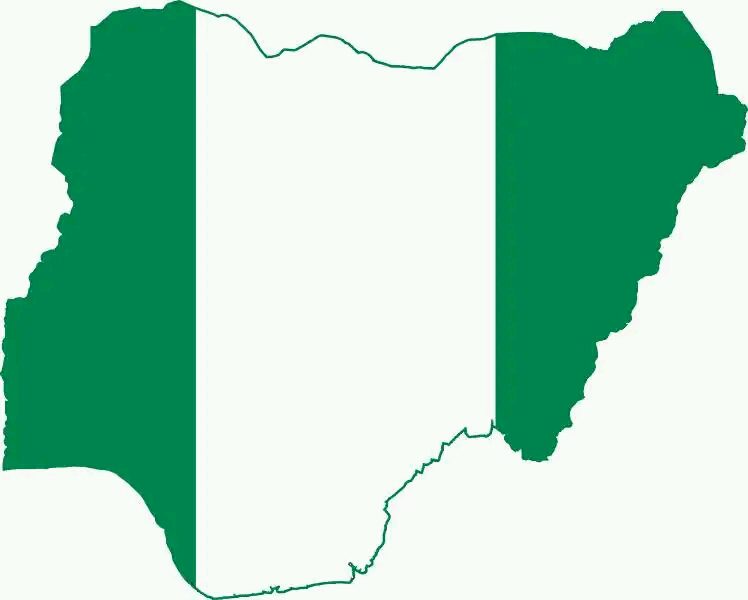National Issues
Corruption And Segregation, The Major Problem Nigeria Is Facing -By Roland Tega
Segregation continues to pose a significant challenge to Nigeria’s social progress and national unity. Overcoming this problem requires a concerted effort from all segments of society. By addressing the root causes of segregation, promoting inclusivity, and embracing Nigeria’s rich diversity, the nation can lay the foundation for a more cohesive, prosperous, and harmonious future.

Corruption still remains a worm that continues eating the society, hindering the development of Nigeria and reducing the trust of it’s citizens in the government. Despite the efforts put in to combat corruption, Nigeria continues to struggle with high levels of corruption that affects both politics and business.
Corruption in Nigeria has deep roots. The country (Nigeria) ranks poorly on global corruption indices, with lots of reports indicating that a lot of money is lost to corruption annually. Political corruption still remains a significant concern, as corrupt practices infiltrate electoral process, public procurement and misappropriation of public funds. This not only undermines democratic institution but also divert funds which are meant for essential services such as health care, education and infrastructural development such as building of train stations, airports e.t.c which would have helped in boosting the country’s (Nigeria’s) economy. As the hospitals are not developed, the politicians who have money usually fly abroad to treat themselves and their families.
The effects of corruption in Nigeria are numerous. Firstly, corruption breeds inequality and perpetuates poverty. Public funds meant for poverty alleviation programs and infrastructure development are often embezzled or misused, exacerbating the gap between the rich and the poor. Additionally, corruption erodes trust in public institutions, diminishing citizen’s faith in the government’s ability to provide basic services and ensure justice.
Moreover, corruption hampers economic growth and discourages foreign investment. Businesses face significant hurdles due to corrupt practices such as bribery, extortion, and favoritism. This not only discourages local entrepreneurs but also deters foreign investors who fear their investments will be compromised. The lack of a level playing field hinders fair competition, stifles innovation, and obstructs economic progress.
Addressing corruption in Nigeria requires a multi-faceted approach that involves the government, civil society, and citizens. Firstly, a robust legal framework and effective enforcement are essential. Strengthening anti-corruption laws, ensuring their strict implementation, and punishing offenders regardless of their status are crucial steps. An independent judiciary and specialized anti-corruption courts can help expedite corruption cases and ensure justice is served.
Transparency and accountability must be promoted at all levels of government. Public officials should be required to declare their assets and interests, and mechanisms for monitoring and verifying these declarations should be established. Furthermore, the establishment of transparent procurement processes and the adoption of e-governance systems can reduce opportunities for corruption and improve efficiency.
Promoting a culture of integrity and ethics is vital. This can be achieved through comprehensive anti-corruption education campaigns that target both the public and private sectors. Ethics training for public officials and the establishment of strong codes of conduct can help cultivate a culture of integrity, fostering a society that abhors corruption.
In addition, promoting whistleblower protection mechanisms can encourage individuals to come forward with information on corrupt practices without fear of reprisals. Whistleblower rewards and an efficient reporting system can incentivize citizens to play an active role in exposing corruption.
Corruption remains a significant obstacle to Nigeria’s development and hampers its progress on multiple fronts. Combating corruption requires concerted efforts from the government, civil society, and citizens to promote transparency, strengthen institutions, and cultivate a culture of integrity. By implementing comprehensive anti-corruption measures, Nigeria can work towards a future where resources are allocated for the betterment of society, trust in public institutions is restored, and economic growth flourishes. Only by addressing corruption head-on can Nigeria unlock its true potential and create a brighter future for its citizens.
Segregation is a deep-rooted issue that has plagued numerous societies throughout history. Unfortunately, Nigeria is one such nation where segregation continues to pose significant challenges to its social fabric and hinder progress. This article aims to shed light on the problem of segregation in Nigeria, exploring its historical context, the various forms it takes, and its detrimental impact on the country’s unity, development, and overall well-being.
The history of segregation in Nigeria can be traced back to the colonial era when the British divided the country along ethnic and regional lines for administrative convenience. This artificial division created a foundation for future conflicts and heightened inter-ethnic tensions. The legacy of segregation continued even after independence, as political power struggles and economic disparities exacerbated existing divisions, leading to further segregation and marginalization of certain groups.
Forms of Segregation
Segregation in Nigeria manifests itself in several forms, primarily along ethnic, religious, and regional lines. Ethnically based discrimination is widespread, with individuals often facing prejudice and limited opportunities based on their tribal background. Religious segregation is another critical issue, as conflicts between different religious groups, such as Christians and Muslims, have resulted in violence and widespread distrust. Additionally, regional disparities in terms of infrastructure, access to basic services, and economic opportunities have perpetuated regional segregation, deepening the divide between the northern and southern regions of the country.
Impact on Unity and National Development
Segregation undermines the unity and social cohesion of Nigeria, inhibiting progress and national development. It fosters a sense of “us versus them” mentality, creating divisions that hinder effective governance and impede collective efforts to address pressing issues. Segregation also undermines the nation’s ability to harness its diverse cultural and human resources, limiting the potential for innovation, economic growth, and social harmony. Furthermore, the resulting conflicts and tensions have often led to violence, displacements, and loss of lives, hindering peacebuilding efforts and diverting resources away from development priorities.
Addressing the issue of segregation requires comprehensive efforts from various stakeholders. Political leaders have a crucial role in promoting inclusivity and fostering a sense of national identity that transcends ethnic, religious, and regional boundaries. Legislation should be enacted to protect the rights of all citizens, guarantee equal opportunities, and prohibit discrimination in all its forms. Educational institutions must emphasize tolerance, diversity, and respect for all cultures and religions, fostering a sense of shared citizenship from an early age. Civil society organizations, media outlets, and community leaders also play a vital role in promoting dialogue, understanding, and collaboration among different groups.
Segregation continues to pose a significant challenge to Nigeria’s social progress and national unity. Overcoming this problem requires a concerted effort from all segments of society. By addressing the root causes of segregation, promoting inclusivity, and embracing Nigeria’s rich diversity, the nation can lay the foundation for a more cohesive, prosperous, and harmonious future.




















